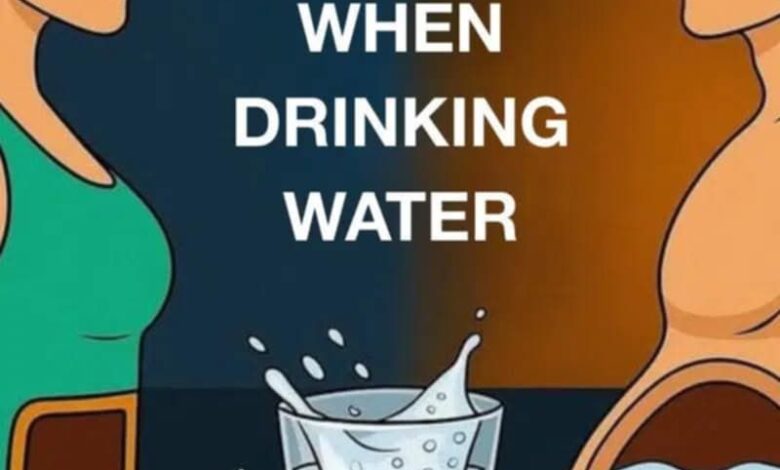The Hidden Hydration Mistakes Sabotaging Your Health and Energy Levels

Proper hydration is essential for optimal health and wellness, yet many people unknowingly make critical mistakes when it comes to their daily water intake. Understanding these common errors can help you maximize your hydration benefits and improve your overall well-being.
1. Skipping Pre-Workout Hydration
The Mistake: Many fitness enthusiasts focus solely on sipping water during their workout routines, completely overlooking the importance of pre-exercise hydration.
The Solution: Even if you maintain consistent water intake during exercise, inadequate pre-workout hydration can lead to dehydration headaches and decreased performance. Health experts recommend consuming at least 8 ounces (240ml) of water approximately 30 minutes before beginning any physical activity. This proactive approach ensures your body starts with optimal fluid levels.
2. Blindly Following the “8 Glasses Rule”
The Mistake: Assuming that eight glasses of water daily works for everyone, regardless of individual needs.
The Reality: The U.S. Institute of Medicine actually recommends 11.4 cups of fluid daily for women and 15.5 cups for men, though individual requirements vary significantly based on factors like body weight, activity level, and climate.
Smart Hydration Strategy: A practical approach is to divide your body weight (in pounds) by two to determine your daily water intake in ounces. For example, a 150-pound person should aim for approximately 75 ounces of water daily. Remember that fruits and vegetables also contribute to your fluid intake—one medium apple provides hydration equivalent to about one cup of water.
3. Avoiding Coffee and Tea Due to Caffeine Concerns
The Myth: Many health-conscious individuals eliminate coffee and tea from their diet, believing these beverages cause dehydration due to caffeine content.
The Truth: While caffeine does have mild diuretic properties, the fluid content in coffee and tea more than compensates for this effect. Research shows that moderate consumption of caffeinated beverages actually contributes positively to your daily hydration goals. Drinking coffee or tea is significantly better than consuming no fluids at all.
4. Waiting Until You Feel Thirsty
The Problem: Relying solely on thirst as a hydration indicator means you’re already entering the early stages of dehydration.
The Health Impact: Chronic mild dehydration increases your risk of kidney stones, urinary tract infections, and other health complications. Your body requires consistent fluid intake throughout the day, not just during intense exercise or hot weather.
Best Practice: Establish a regular hydration schedule by drinking water at consistent intervals throughout the day, regardless of whether you feel thirsty.
5. Confusing Thirst with Hunger
The Issue: Many people misinterpret their body’s thirst signals as hunger cues, leading to unnecessary calorie consumption and inadequate hydration.
The Solution: Drinking a glass of water before meals serves a dual purpose: it helps you distinguish between genuine hunger and thirst while supporting healthy portion control. Make it a habit to drink water immediately upon waking to kickstart your daily hydration and maintain optimal fluid balance throughout the day.
Key Takeaways for Optimal Hydration
Proper hydration supports weight management, energy levels, skin health, and cognitive function. By avoiding these common mistakes and implementing smart hydration strategies, you can enhance your overall health and wellness journey. Remember that individual hydration needs vary, so pay attention to your body’s unique requirements and adjust your water intake accordingly.
Always consult with healthcare professionals for personalized hydration recommendations, especially if you have underlying health conditions or take medications that may affect fluid balance.